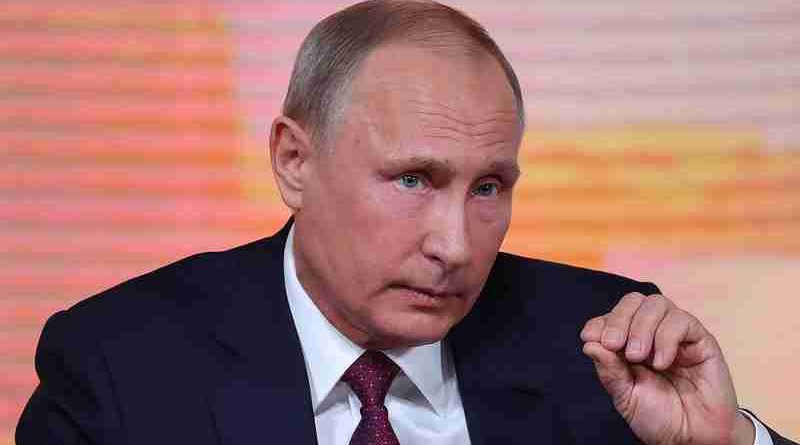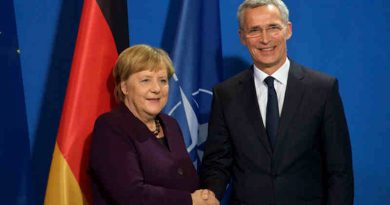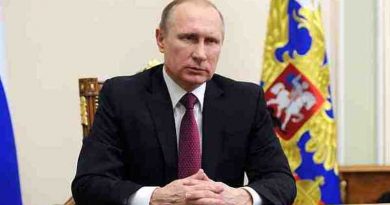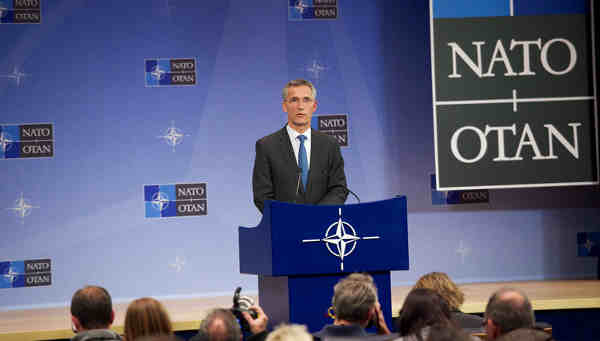Opposition Leader Alexei Navalny Fears Election Fraud in Russia

Alexei Navalny fears that some vote-rigging may happen to help Putin win again fraudulently.
By Rakesh Raman
Russian opposition leader Alexei Navalny has urged the European Union (EU) to reject the results of Russia’s parliamentary election next year if any candidates are blocked from taking part in the election. He also called on the EU to impose sanctions on oligarchs close to President Vladimir Putin.
Navalny – a politician and anti-corruption activist – described next September’s election for Russia’s lower house of parliament as a crucial event and feared that some vote-rigging may happen to help Putin win again fraudulently.
In 2018, Putin had won the presidential election to lead Russia for his second 6-year term. Putin has ruled the country as either President or Prime Minister since 1999. In 2018 election, according to official results, he got more than 76% of the votes with an increase of 12% from his 2012 performance.
Putin’s nearest competitor Pavel Grudinin received just 12% of total votes and Navalny, who was planning to challenge Putin in the election, was barred from the race.
Now, reports suggest that Putin may quit early next year amid growing concerns over his health. The Sun reports that a recent footage of Putin, 68, showed that he may be suffering from Parkinson’s disease.
Earlier, in July, Putin had held a dubious poll to accept constitutional changes that allowed him to stay in power until 2036. However, Navalny refused to accept the results of the poll, saying that it was an illegitimate vote designed to legalize Putin’s presidency for life.
Navalny had added that with the help of his supporters he will hold “street protests” against Putin. But in August Navalny was allegedly poisoned by Russia.
An authoritarian ruler Putin has been hell-bent to destroy democratic systems in different parts of the world. His brand of politics is being practiced in countries such as the U.S., India, Brazil, Belarus, and others.
[ Modi Govt Manipulates EVMs to Win Elections: Akal Takht Chief ]
Meanwhile, the global chemical weapons watchdog Organization for the Prohibition of Chemical Weapons (OPCW) has asked Russia to explain the poisoning of Navalny.
The OPCW director-general, Fernando Arias, said on November 30 that according to the Chemical Weapons Convention, “the poisoning of an individual through the use of a nerve agent is a use of a chemical weapon.”
A group of 56 nations issued a statement at the start of the OPCW annual meeting, urging Moscow to disclose in a swift and transparent manner the circumstances of this chemical weapons attack. Russia, however, has denied any involvement in Navalny’s poisoning.
In October, according to an AP News report, Moscow had asked for OPCW experts to visit Russia to provide “technical assistance” in its investigations. The OPCW chief Arias said talks are underway to define all the legal, technical, operational and logistical parameters in order for this visit to take place.
Meanwhile, the European Union has imposed sanctions on six Russian officials and a state research institute over the poisoning. Moscow responded in November by announcing similar sanctions against a number of German and French officials.
By Rakesh Raman, who is a national award-winning journalist and social activist. He is the founder of a humanitarian organization RMN Foundation which is working in diverse areas to help the disadvantaged and distressed people in the society.
💛 Support Independent Journalism
If you find RMN News useful, please consider supporting us.




